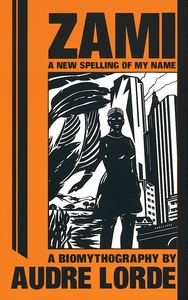Emily Banting’s latest release, Reality in Check, came out August 12, 2023 and I couldn’t wait to get my hands (and eyes) on it. If you haven’t already, you should absolutely check out Broken Beyond Repair, Emily’s preceding novel in the South Downs Romance series. It’s not necessary to have read that before diving into Reality in Check, though if you have, you will certainly appreciate the cameos in the epilogue of the book.
Reality in Check follows two women, Arte and Charlotte, on their journeys to find happiness, both professionally and personally. We meet Arte as she is returning “home,” to the hotel her grandmother and grandfather used to run and own. Arte, and her sister Sophie, have been left the hotel after the death of their Gran. While Arte’s sister is not really interested in running the hotel, Arte is determined to honor their Gran by getting it back up and accepting guests as soon as she can. Arte, unlike Sophie, had spent a significant amount of time in the hotel. For all intents and purposes, it had been her home and it’s filled with memories. Arte is so committed to making things work and honoring the woman who had been there for her when she needed it most, she leaves her work and life in Rome. What meets Arte is a wall of memories, a pile of bills, and a hotel in desperate need of work—maybe more than Arte can do alone. Arte is also left with her Gran’s lab, Rodin. (You just know a book is going to be good when there’s a dog involved.)
It seems Arte’s Gran knew the hotel needed help and that things had gotten to a point where she could not do the updates that needed to be done on her own…if only Arte had known that.
Before Arte’s Gran had passed, she contacted the reality show to help revamp parts of the hotel. Enter Charlotte Beaufort—host of Hotel SOS. “A formidable woman with a trigger. Colour me intrigued.” Color me also intrigued. I have never read a description that had me ready to meet someone so badly.
Charlotte has been the host of Hotel SOS for the last several years. She has a reputation for being honest and a tad bit brutal in her commentary about the state of the hotels she has been sent to help. Prior to that, she was managing one of her family’s Beaufort Hotels. We come to meet Charlotte at a time in her life when she’s unhappy in her marriage and all she wants is for her mother to trust her enough to take over the family business. But, Charlotte’s mother, Claudette, seems bound to stay at the helm. Before I go any further, it is no secret to anyone that knows me that I love an Ice Queen. Any shape or form, I am here for a woman with an icy exterior who is competent, a tiny bit (or a lot) bossy, and who has a lot going on under the surface no one knows about. With Charlotte Beaufort, it was as if I went to a Build-An-Ice Queen brick and mortar and picked her out myself. A fifty-one year old woman who has worked hard, is incredibly good at her job, hot, AND mommy issues?? Sign me up! That is the roundabout way of saying to you, dear reader, that I loved her.
When Arte and Charlotte first meet, it goes…poorly. Charlotte doesn’t know who Arte is and in an effort to make small talk, absolutely steps in it. What follows is a dynamic involving a woman who is still dealing with the loss of her grandmother, contrasted with a woman who has been wearing a persona for so long it’s hard for her to know whether that’s who she actually is, or whether it has just become like second nature because she’s gotten so good at being that way.
The thing about “Ice Queens” is that there is always more than meets the eye, and perhaps that’s why I love them so much. Charlotte is no different. We see examples of that told through her assistant. After all, an Ice Queen would never directly tell us they have a big ol’ heart filled with kindness under that icy exterior, now would they?
Woven into the potential blooming romance, there is the very fresh grief Arte is experiencing. Emily writes so beautifully about grief, and how that process is never a linear line. There is a line in this book that I immediately loved and highlighted: “If it represents your grief, it’s unlikely to ever be finished.” That is absolutely the thing about grief. It’s never gone, and when we lose someone we love, that grief will always be present. This is a gorgeous story about the things people do to honor those they have lost, the ways humans try to ease the grief they are feeling, and the very real acknowledgement that it never really goes away. It also shows us that grieving does not always look the same for everyone, even within the same family. Through Arte, Emily wrote a character that was doing her best to honor her grandmother, while also honoring the dreams she has had for her life and being true to those, as well. After all, those who truly loved us would want that above all else.
Where Arte has been given the freedom from a young age to pursue the things that made her happy, Charlotte had been set on a path for one thing only: take over the family company. That was her father’s intention for her before he died. And for many years, that was what Charlotte was working toward. She worked hard for it, and she was very good at everything that was set (intentionally) in her path. Charlotte is a prime example of someone that was born with expectations put on her, and when you’re born with those, sometimes it is easy to conflat those expectations with your own dreams. What I loved about Charlotte’s story was that while in many ways meeting Arte may have been the catalyst for her to re-evaluate things, it was her that took the steps needed to change what she didn’t like about herself and her life. But I think that is what good matches do: they allow us to see ourselves in a way we may have been afraid to and give us the push we need to be a little (or a lot) brave.
I absolutely adored this book. In many ways, it was reminiscent of all the things I love about a Hallmark movie, which I mean to be the highest of compliments. Only, this book was gayer, better written with more depth, and tackled serious parts of the human experience with beauty and realness a Hallmark movie could never. I consider it to be an aspirational Hallmark story where if I could make a sapphic one, it would look like this. There is growth for both of these characters, not just Ice Queen Charlotte. Charlotte helps Arte broaden her view of the world just as much as Arte helps Charlotte get in touch with what is most important to her. There is a balance each character offers the other. Did I mention I love Charlotte Beaufort?
I highly recommend Reality in Check for you to discover for yourself the beautiful story of Arte and Charlotte.


